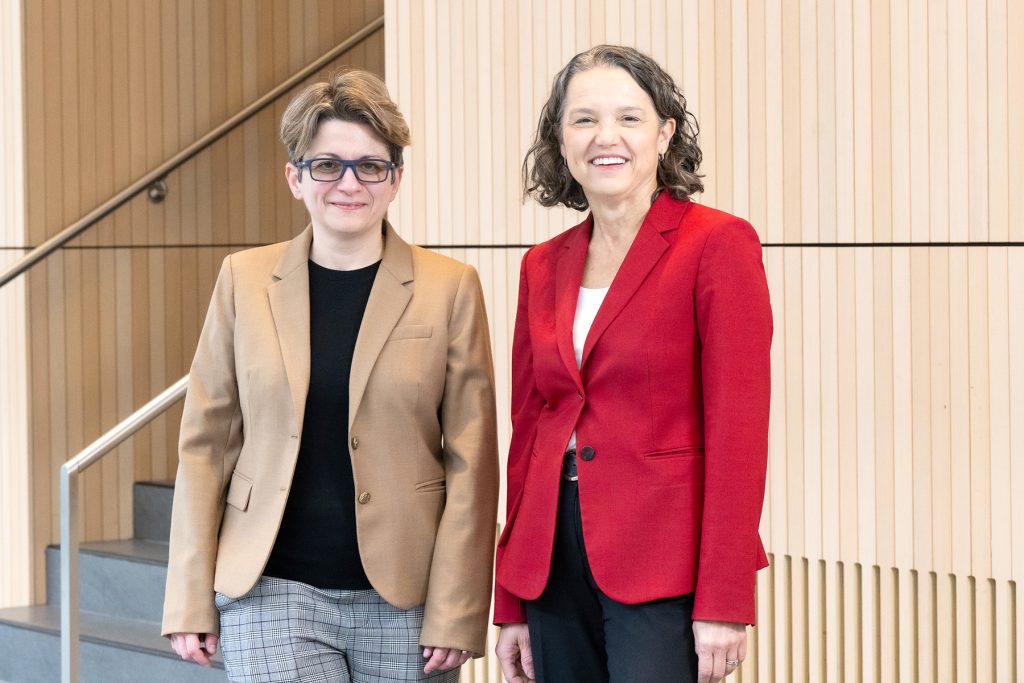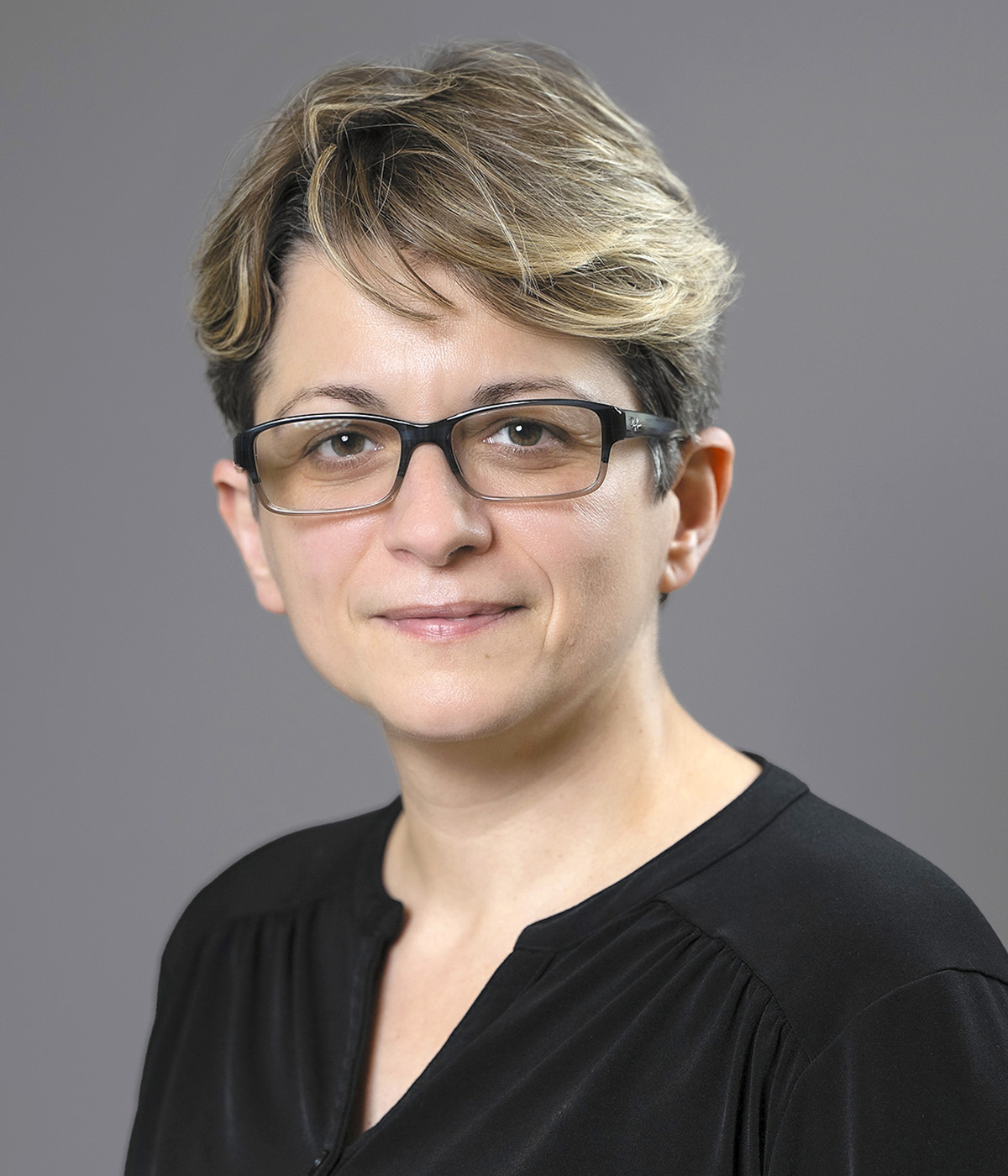New Columbia Center Will Leverage AI
to Enhance Patient Care Around Cancer, Other Diseases
Artificial intelligence (AI) offers a pathway to enhance several critical aspects of care for patients with cancer or other diseases. Despina Kontos, PhD, a computer scientist with expertise in artificial intelligence, machine learning, and big data analytics for multi-modality imaging data, believes Columbia University offers both the perfect location and team to build that path.
“I think there is immense untapped potential in this area of research,” said Kontos, professor of and director of the new Center for Innovation in Imaging Biomarkers and Integrated Diagnostics (CIMBID) at Columbia University. “Between NewYork-Presbyterian (NYP) Hospital, Columbia, and Cornell, the wealth of data and diversity of the population is so unique that I truly believe we can be one of the leading institutions, if not the leader, in this area.”

CIMBID, housed in the Department of Radiology, is a multidisciplinary center that will form collaborations across Columbia, including researchers from biomedical informatics, biomedical engineering, systems biology, the Mailman School of Public Health, and the Herbert Irving Comprehensive Cancer Center. Despina Kontos (left) is pictured here with CUIMC Dean Katrina Armstrong. (photo by Diane Bondareff)
Under Kontos’ leadership, CIMBID will be dedicated to developing and integrating quantitative imaging and non-imaging biomarkers for disease prediction, particularly in cancer. Kontos, who made seminal contributions in leveraging artificial intelligence tools for risk prediction in breast and lung cancer while serving as professor of research radiology at the University of Pennsylvania, believes that AI can enable better patient care in three major areas:
- Cancer Screening and Protection – Identifying patients who are at a higher or lower risk for getting the disease and personalizing screening to factor in both risk profile and cost-effectiveness.
- Diagnosis, Prognosis, and Planning Therapy – Quantifying information about a particular disease to help physicians select the most appropriate treatment.
- Evaluation and Response to Therapy – Utilizing data from standard-of-care radiology images to assess whether a patient is responding to therapy early in the treatment process and modify it when it is not working.
“Artificial intelligence is trying to program computers to think like humans,” Kontos said. “A doctor looks at a report from a radiologist, looks at the notes, considers the family history, comorbidities, genetic tests, etc., and figures out a course of action. With these models, we can try to do that a bit more comprehensively and in a more quantitative and standardized fashion throughout the different stages of patient care.”
Achieving this goal requires collaboration across multiple disciplines, or “team science,” as noted by Katrina Armstrong, MD, Chief Executive Officer of the Columbia University Irving Medical Center and Dean of the Faculties of Health Sciences and the Vagelos College of Physicians and Surgeons (VP&S), when she first introduced the center.
“It’s essential,” Kontos said. “We can’t think about any of this information in isolation. We are leveraging data science and AI to combine the information from various sources, different modalities and different approaches, and coming up with more personalized precision algorithms so that we can risk stratify patients and better take care of them.”
CIMBID will develop initiatives in collaboration with multiple areas at Columbia, including biomedical informatics, biomedical engineering, systems biology, the Mailman School of Public Health, and the Herbert Irving Comprehensive Cancer Center. The research and clinical initiatives

Despina Kontos, PhD
will share a common goal of using new approaches to understand the behavior of disease and then translate the findings to patient care.
“The ecosystem (at Columbia) for this type of research is exceptional,” Kontos said. “We have Biomedical Informatics, one of the leading departments in the country, with such strong expertise in EHR and informatics. We have Genetics, Systems Biology, and Bioinformatics, as well as a strong cancer center. CIMBID will create an environment where all these groups can come together and coalesce in a unique way that can accelerate the development of these algorithms.”
Kontos will serve as vice chair of artificial intelligence and data science research in the Department of Radiology, while having joint appointments in the Department of Biomedical Informatics at VP&S and Biomedical Engineering in Columbia’s engineering school. She is also a member of the Herbert Irving Comprehensive Cancer Center (HICCC) and director of biomarker imaging at NYP, which has devoted resources to develop infrastructure to allow the leveraging of data across the hospital, while also taking tools developed from these efforts and put them back in the clinic to both test and, ultimately, to help with patient care.
While research is a major component within CIMBID, Kontos enjoys the training aspect as well.
“Training is an essential part of what we do as academics,” she said. “For me, the two most exciting parts of my work are being around students, young people with fresh ideas who make my day, and interacting with people outside of my discipline. I find that to be invigorating, and it pulls me into new directions.”
“All the elements are here, and I’m very excited to be entrusted to pull these all together,” Kontos added.
Learn more about Dr. Kontos’ research from a DBMI seminar she led in October, 2023.


